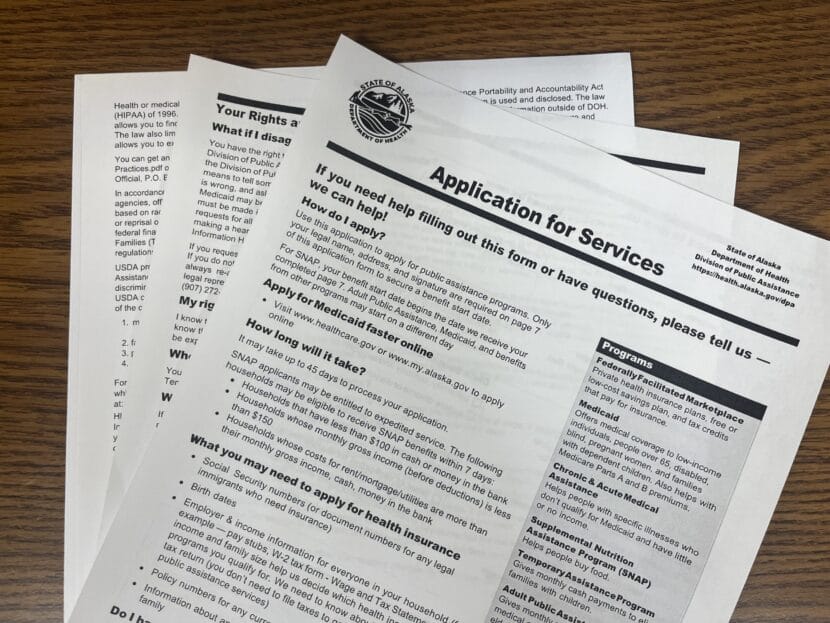
Alaskans applying for Medicaid, the government-run insurance program for low-income people, are facing long wait times as the Division of Public Assistance struggles to keep up with demand. Some 15,646 applications are pending, according to the state health department.
But in most cases, eligible Alaskans are still able to access care as long as they’ve submitted an application, said division director Deb Etheridge. Coverage for Medicaid-eligible people takes effect the first day of the month an application is submitted. For example, a doctor’s visit on May 1 would be covered by an application submitted May 31.
“Even if we haven’t provided an eligibility determination, Medicaid will go backwards and pay those medical expenses back to the date of application,” Etheridge said in an interview. “And in some circumstances, we can look retroactively an additional three months if you had medical expenses.”
That’s true for most regular medical care like doctor visits, hospital stays and the like, Etheridge said. But to book medical travel, fill prescriptions or other urgent services that require payment up front, people have to call the division to have their application expedited. Etheridge said applications can then be approved in a matter of hours. Applications can also be processed same-day at many state public assistance offices, she said.
The reason for the backlog is somewhat complex. Etheridge said the issue stems from federal requirements during the so-called “unwinding” process in the wake of the pandemic. The state’s eligibility system was geared to evaluate households, not individuals, as was required, Etheridge said. That presented roadblocks when, for example, looking at families with children — the children should be continuously eligible for Medicaid, but the parents were required to renew. Etheridge said that led the division to stop closing applications that didn’t provide the right information, leading to the backlog.
Many state public assistance employees work on several different aid programs, and while the state paused work on many Medicaid applications, Etheridge said that freed them up to help with a backlog in the Supplemental Nutrition Assistance Program, or SNAP.
But she said the situation is improving. Etheridge said her staff is working overtime and on weekends, and the state is hiring 15 new staff to focus on shoring up the Medicaid program. She said they’re also automating as many tedious and time-consuming tasks as possible.
“To the extent that we did leverage staff who used to be working on Medicaid to help us in our SNAP backlog, we’re also growing that staffing pattern and doing those efficiencies in our processing so that we hope that we will, it’ll be sort of even as we move forward,” she said.
Additionally, she said people who are eligible for SNAP are automatically eligible for Medicaid. And many Medicaid applicants can have their applications processed at the federal healthcare marketplace on Healthcare.gov.
Etheridge said she also expects a recently passed bill loosening eligibility requirements to speed up processing, but she said that’ll have to wait until after computer system upgrades are complete in July 2025.


